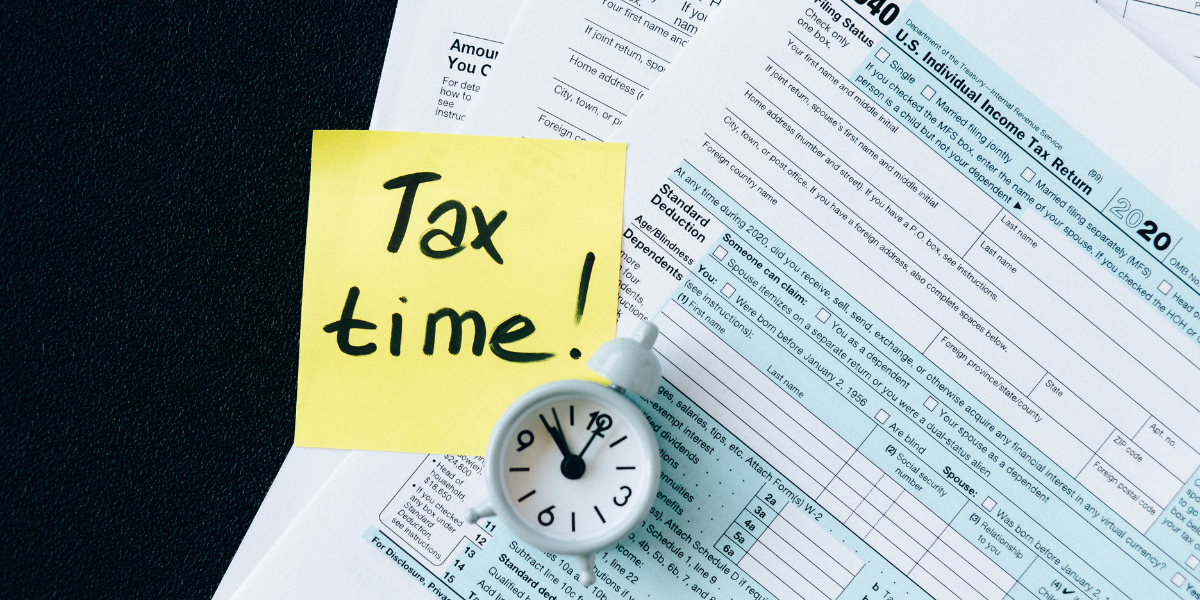Americans who earn above a certain threshold — even those living abroad — must file a federal tax return each year. While Americans living within the US must file their return by April 15th, US expats have a June 15 tax deadline. Fortunately, those who need extra time can request an extension.
While the time to request a tax extension for the 2023 tax year has already expired, you may want to file one in the future. In that case, it’s important to know what tax extensions do, when they come in handy, and how to file one. Read on as we walk you through those topics and more below.
US tax extensions explained
As its name implies, a US tax extension grants you additional time to submit your federal tax filing.
Americans living abroad already have an automatic two-month extension on their tax returns from the regular due date of April 15th to June 15th. This tax filing deadline applies to anyone living and working outside the US as of April 15th.
You can further extend this deadline by four additional months, from June 15 to October 15th, by proactively requesting an extension.
Reminder:
If any of these dates fall on a weekend, the deadline is pushed to the next business day.
An extension can be useful in several situations, such as if you:
- Only recently discovered your tax obligations as a US expat
- Are waiting on tax documents from foreign employers or foreign financial institutions where you hold investments
- Need additional time to review available tax deductions
- Had a child in the last year and are waiting on their US Social Security Number (SSN) to claim the Child Tax Credit
Options for filing an extension
To receive an extension on your tax return, you’ll need to file Form 4868. There are two ways to file this form: electronically and by mail.
Electronic filing (Form 4868)
For most expats, the easiest way to file Form 4868 is to do so electronically. Anyone who files a US income tax return can file an extension online for free through the IRS Free File program.
You may also be able to file Form 4868 through tax software, but remember that not all tax software providers offer services for US expatriates.
Fortunately, Form 4868 is short and straightforward. All you need to do is:
- Disclose personal information like your name, address, SSN, and your spouse’s SSN (if applicable)
- Enter information about your individual income taxes like your estimated tax liability, completed payments, balance due, and the amount you’re paying (if applicable)
Pro tip:
Don’t forget to check the box next to line 8 indicating that you live abroad.
Paper filing (Form 4868)
While electronic filing is the recommended approach, you can also print Form 4868 and mail the completed copy to the IRS. If you plan to file only Form 4868, address it to:
Department of the Treasury
Internal Revenue Service
Austin, TX 73301-0215
USA
If you plan to file Form 4868 and attach a tax payment, address it to:
Internal Revenue Service
P.O. Box 1303
Charlotte, NC 28201-1303
USA
Further extensions
If the October extension still doesn’t give you enough time, you can request another final extension to December 15th. To do so, you must submit a letter to the IRS with your name, Social Security Number, and an acceptable reason for the extension.
Note: You can’t request this extension electronically, and the IRS does not automatically approve it.
Next steps after filing an extension
So you’ve filed an extension — now what? While tax requirements vary from person to person, the following steps are a good place to start:
Understand your tax & reporting obligations
To be fully compliant, you must file all the forms, schedules, and reports your circumstances necessitate. The main federal income tax return form for expats is typically Form 1040.
In some situations, however — such as if you own an S Corp — you may file a different one.
Other common forms for expats include:
- Form 2555: For claiming the Foreign Earned Income Exclusion (FEIE) (more on that in a bit)
- Form 1116: For claiming the Foreign Tax Credit (FTC) (again, more on that in a bit)
- Form 8833: For claiming the benefits of a tax treaty
- Form 8938: Also known as the Statement of Specified Foreign Assets, this document is for reporting foreign assets that exceed $200,000 on the last day of — or $300,000 at any point during — the tax year (thresholds for taxpayers in the US are lower)
- FinCEN Form 114: Also known as the Foreign Bank Account Report (FBAR), this document is for reporting the contents of foreign financial accounts when combined holdings exceed $10,000
Note:
You must file Form 114 — Report of Foreign Bank and Financial Accounts (FBAR) with the Financial Crimes Enforcement Network (FinCEN) bureau of the US Treasury rather than the IRS.
This is far from a complete list of requirements. If you’re unsure of which forms to file, consult a tax professional for assistance.
Start collecting your tax documents
Gathering your required documentation can take a while (especially for expats!), so the sooner you start, the better. A few documents you may need include:
- Foreign tax returns
- Wage statements
- If your employer is based in the US, you will receive either a W-2 for salaried work
- Investment income documents
- These commonly include 1099-INT, 1099-DIV, and 1099-B (or 1099-K for business owners)
- Other income documents (such as pension income, rental income, lottery winnings, etc.)
- Profit and loss statements, if you own a business
- Documents detailing any capital gains realized during the year
- US travel dates
- Proof of expenses
Review available tax credits & deductions
US expats can claim many of the same tax breaks that they do in the US, such as self-employed business deductions, charitable donations, and the previously mentioned Child Tax Credit.
On top of that, expats are also eligible for a couple of tax breaks specific to Americans living abroad:
- The Foreign Tax Credit (FTC): Gives you dollar-for-dollar US tax credits on any foreign income taxes you’ve paid. This essentially lets you subtract what you’ve paid in foreign income taxes from your US tax bill.
- The Foreign Earned Income Exclusion (FEIE): The FEIE allows anyone who passes the Physical Presence Test or Bona Fide Residence Test to exclude a portion of their foreign-earned income from taxation. In tax year 2023, you can exclude up to $120,000; in tax year 2024, that number increases to $126,500 to account for inflation.
- The Foreign Housing Exclusion/Deduction (FHE/FHD): Qualifying for the FEIE also immediately qualifies you for the FHE (or FHD if you’re self-employed). The FHE helps you offset the cost of certain foreign housing expenses like rent, utilities, and rental insurance.
Tax benefits such as the Foreign Earned Income Exclusion, Foreign Tax Credit, and Foreign Housing Exclusion can significantly reduce your tax liability.
Hire a tax professional, if necessary
If you’re filing from abroad for the first time, have complex finances, or just don’t want to spend time and energy filing your own taxes, consider hiring a tax professional. A few things to look for in a tax advisor include:
- A Certified Public Accountant (CPA) title
- A specialization in expat taxes
- Multiple years of experience
- Positive client reviews & testimonials
- Reasonable, transparent pricing
Important reminders
Payments are still due April 15th
While Form 4868 gives you an extension of time to file, it does not grant you additional time to make tax payments. To avoid Failure to Pay penalties and interest, you must make any estimated tax payments due by April 15th.
You probably don’t know exactly how much you owe in taxes if you haven’t prepared your tax return yet, but that’s okay. A reasonable estimated payment should help you avoid additional fees. Make sure to take credit for this estimated payment in your tax return when you ultimately file it.
If your estimated payments exceed your final tax liability, you’ll receive a refund. On the other hand, if your final tax liability is greater than your estimated payments, you’ll need to pay the difference.
Form 4868 does not necessarily apply to state taxes
In some cases, expats may also be on the hook for state tax returns. This is particularly true if they:
- Most recently lived in one of the “sticky states” of California, New Mexico, New York, South Carolina, or Virginia
- Spent a significant amount of time in a given state (often over 183 days)
- Maintain a permanent abode in a given state
- Retain strong financial or social ties to a given state
In such cases, filing Form 4868 will not necessarily grant you an extension on your state taxes, although some states will automatically accept the Federal-level filing. Each state has different processes for requesting tax extensions, so you’ll need to reference the rules in the specific state(s) relevant to you.
The Streamlined Procedure may help you catch up penalty-free
If you fell behind on taxes because you weren’t aware of or didn’t understand your US tax and reporting obligations, don’t panic. An IRS amnesty program called the Streamlined Foreign Offshore Procedure (aka the Streamlined Procedure) may help you catch up with no additional fines or fees.
To qualify, you must:
- Have lived abroad for at least 1 of the last 3 tax years
- Have a valid taxpayer identification number (TIN), usually your SSN
- Have fallen behind on your taxes due to a good faith misunderstanding of your obligations
- Be in good standing with the IRS
- Not have already received a notice from the IRS about overdue tax returns
The Streamlined Procedure involves filing:
- Form 14653, certifying that your previous non-compliance was non-willful
- Tax returns for the last three years, with any outstanding taxes due
- FBARs for the last six years, as applicable
When in doubt, consult a tax professional
Tax extensions are essential for expats who need a little extra time to file their returns. While you’ll still have to make estimated payments by April 15, filing Form 4868 extends your tax return due date from the June 15 filing deadline to October 15. You can even request an additional extension in writing to December 15.
If you’re short on time or feeling overwhelmed, don’t hesitate to contact a tax professional. They can file extensions on your behalf, answer any questions you might have, reduce your tax burden, prepare your return, and much more.

 Connect on LinkedIn
Connect on LinkedIn





